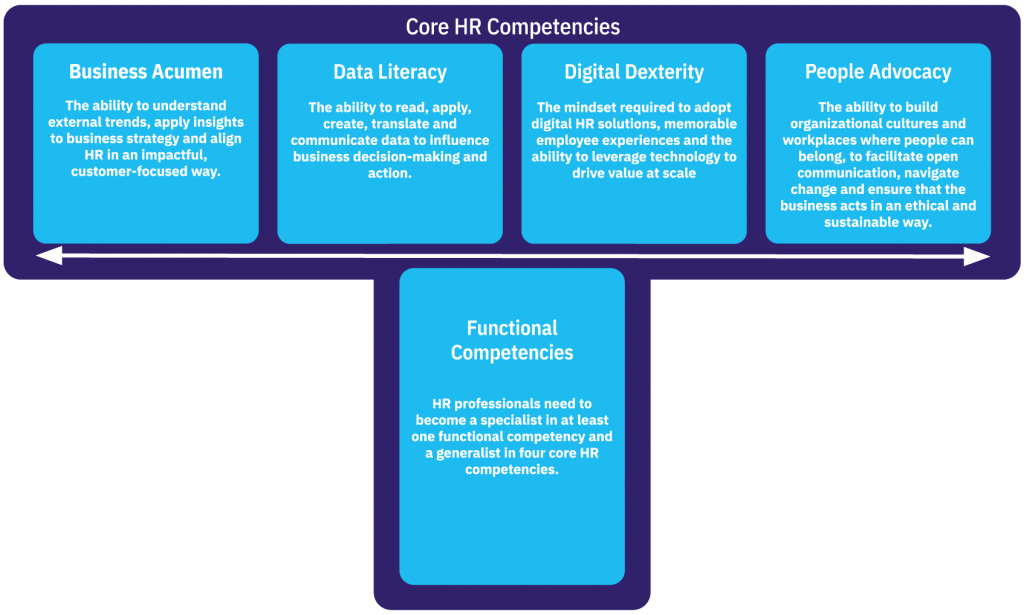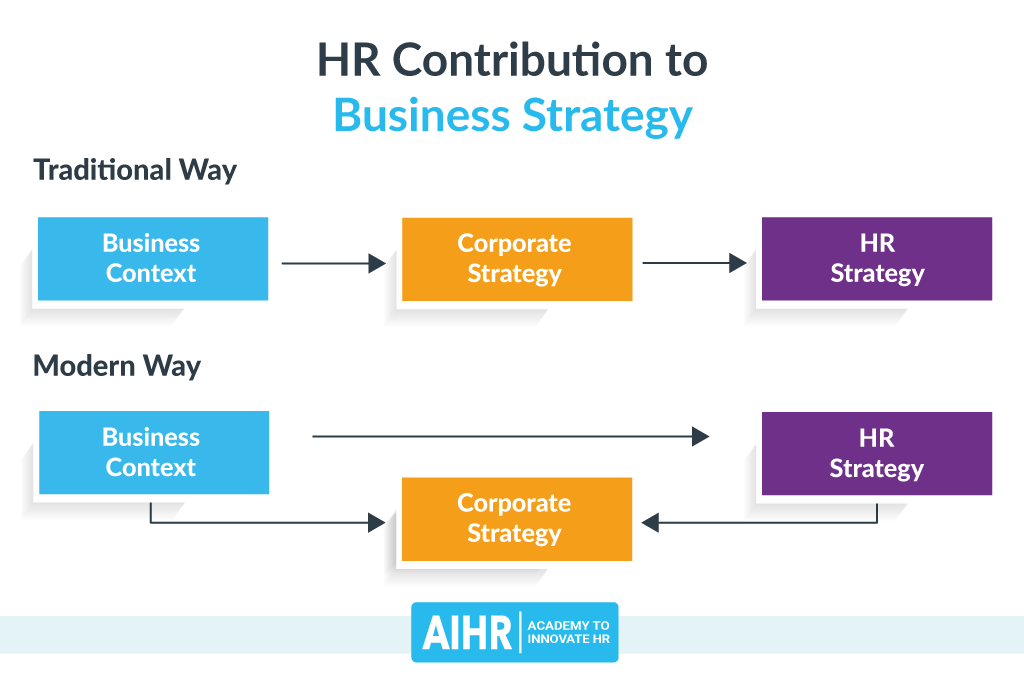
Human Resources covers multiple functions besides general HR (Recruitment, C&B, T&D), and the value that HR professionals add to the business reaches far and wide. You can provide general advice to your business, support the implementation of technology or other digital initiatives, build and maintain a healthy organizational culture, or strategically integrate the HR value chain into business activities.
As we look deeper into the competencies you need to perform different roles on the HR spectrum, four stand out as core competencies. We noticed that a typical HR professional will need to develop a set of both functional and general skills throughout their career, which makes them a T-shaped HR professional.
To be T-shaped, you need to develop a certain level of proficiency in four core competencies, namely Business Acumen, Data Literacy, Digital Dexterity, and People Advocacy. Each of these competencies has different dimensions, which consist of specific behaviors. These are the general skills mentioned above and the ones that are transferable between different HR roles. Aside from these, you will also need to specialize in at least one area of HR. It can be recruitment, DEIB, HR analytics, or organizational development.

In this article, we’ll discuss about the first competency: Business acumen
To some, business acumen means understanding certain business disciplines—finance and accounting, for example—or knowing the specific details of other functional areas in an organization—say, logistics or sales. But, in practice, business acumen is about more than that, important as that knowledge is.
Business acumen is much broader in scope, as Society for Human Resource Management (SHRM) researchers developing the SHRM Competency Model learned from HR professionals around the world. HR can handle the what, how and why of business, and this competency includes many other behaviors that are necessary to prove it.
Business acumen refers to the ability to understand an organization’s goals, purpose, and vision and create processes, policies, and activities aligned with this that best serve the organization and drive it forward. It’s a vehicle for improving financial performance and leadership development.
Business acumen is also sometimes referred to as business sense or business savvy.
HR professionals who have business acumen understand the core business principles, internal and external operations, and the goals of the organization; they can strategically tailor and position their policies and day-to-day activities to best serve the organization and its end customers, leading to an increase in profits.
They know that business strategy is not separate from Human Resources but rather a fundamental part of fully understanding an organization and best serving both its employees and end customers.
Business acumen comprises three key components:
1. Context interpretation
Context interpretation refers to the understanding of the global context of work and the internal organizational dynamics.
This aspect requires a good grasp of market trends and forces that are currently affecting the business or might do so in the future, plus a more comprehensive awareness of macroeconomic and social factors affecting the organization.
2. Customer orientation
Customer orientation refers to the knowledge of the organization’s products or services, the end customer, and aligning HR policies to optimize delivered value.
It’s also vital to have a solid understanding of people, culture, and leadership, as well as change dynamics.
3. Strategy co-creation
Strategy co-creation refers to HR having a deep understanding of its organization’s value and what makes it a success (or not), and using this knowledge to co-create aligned business strategy together with the business leaders. To put it differently, it goes beyond the surface level of the finances and how the business works.

HR’s role in modern organizations is to build HR strategy which co-creates the corporate strategy. That’s why it is essential for HR professionals to understand business.
To know more about Behaviors of HR professionals exhibiting strong business acumen and How to develop HR business acumen, please refer at the link: https://www.aihr.com/blog/business-acumen-for-hr-professionals/
In conclusion, A successful HR professional needs more than just in-depth knowledge of compensation and benefits, talent acquisition, or learning and development. You also need to understand the operations of the business, including how its products are made, how it delivers its services, how it makes a profit, and so on. This is why it is now very common to find HR professionals who have previously worked in Marketing, Sales, or Product Development.
Source: AIHR, SHRM
https://www.aihr.com/blog/business-acumen-for-hr-professionals/





You must be logged in to post a comment.